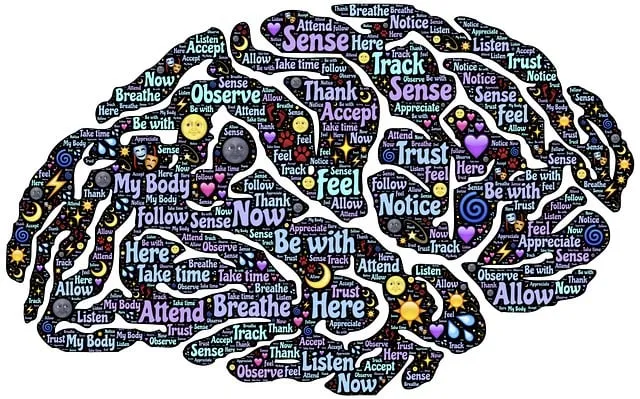In today's diverse healthcare landscape, especially at Kaiser Permanente mental health locations in Aurora, cultural competency is essential for delivering quality care. It respects and understands cultural differences influencing patients' health beliefs, values, and behaviors, helping providers navigate complex situations effectively, particularly in addressing mental health concerns. Kaiser Permanente Aurora stands out as a leader through its commitment to cultural competency and holistic approaches, offering specialized programs tailored to diverse communities. Training for mental health professionals should incorporate cultural sensitivity to improve risk assessment and care. Through community engagement, interactive methods, and real-life examples, effective cultural competency training enhances communication, satisfaction, and health outcomes at Kaiser Permanente mental health locations in Aurora.
Healthcare provider cultural competency training is more than a nice-to-have; it’s a necessity in modern, diverse practices. As healthcare systems strive to serve increasingly varied populations, understanding and respecting cultural differences can significantly enhance patient care. This article explores this critical topic, focusing on Kaiser Permanente mental health locations in Aurora as a model for integrating cultural competency into healthcare training, with insights on its impact and effective strategies for implementation.
- Understanding Cultural Competency in Healthcare: A Necessity in Modern Practice
- Kaiser Permanente Aurora: A Focus on Mental Health and Diversity
- The Impact of Training: Enhancing Patient Care and Outcomes
- Strategies for Effective Cultural Competency Training Programs
Understanding Cultural Competency in Healthcare: A Necessity in Modern Practice

In today’s diverse healthcare landscape, cultural competency is no longer a luxury but an absolute necessity. Understanding and respecting cultural differences among patients is essential to providing quality care, especially at Kaiser Permanente mental health locations in Aurora. Cultural competency involves recognizing and appreciating the impact of culture on an individual’s health beliefs, values, and behaviors. It equips healthcare providers with the skills to navigate complex situations, ensuring effective communication and building trust with diverse patient populations.
The importance of cultural competency is particularly evident when addressing mental health concerns. Emotional healing processes are deeply influenced by cultural context, and what works for one individual might not be suitable for another. Kaiser Permanente’s Mental Wellness Podcast Series Production highlights this need by offering insights into various cultural perspectives on mental wellness. Moreover, training in risk assessment for mental health professionals should incorporate cultural sensitivity to accurately identify and mitigate risks within diverse communities.
Kaiser Permanente Aurora: A Focus on Mental Health and Diversity

Kaiser Permanente Aurora stands out as a beacon of cultural competency and holistic healthcare, with a strong focus on mental health services in its diverse community. This location prioritizes addressing mental health concerns within a culturally sensitive framework, recognizing the profound impact of stress reduction methods tailored to various backgrounds. The center offers not only specialized therapy but also innovative programs that foster social skills training and conflict resolution techniques, ensuring patients from all walks of life receive personalized support.
By integrating these approaches, Kaiser Permanente Aurora aims to create an inclusive environment where every individual feels heard and understood. This commitment to diversity extends beyond words, as the mental health locations in Aurora actively incorporate cultural competency into their core practices, ultimately enhancing patient outcomes and fostering stronger connections within the community.
The Impact of Training: Enhancing Patient Care and Outcomes

Cultural competency training is a game-changer when it comes to enhancing patient care at healthcare provider organizations like Kaiser Permanente mental health locations in Aurora. By equipping professionals with the skills to navigate diverse cultural backgrounds, these workshops foster better communication and understanding between patients and providers. This leads to improved patient satisfaction and engagement, crucial factors in achieving positive health outcomes.
The impact extends beyond individual interactions; it ripples through the organization. Trained staff are better equipped to handle sensitive issues, such as mental health concerns, that may be influenced by cultural nuances. They can offer tailored support using effective stress management workshops and social skills training, incorporating evidence-based stress reduction methods. This comprehensive approach not only improves patient care but also creates a more inclusive environment, ensuring every individual receives the personalized attention they need to thrive.
Strategies for Effective Cultural Competency Training Programs

Effective cultural competency training programs for healthcare providers should incorporate a multi-faceted approach tailored to diverse communities. One strategy involves community engagement, where training sessions are organized in collaboration with local community leaders and organizations serving various ethnic, cultural, and linguistic backgrounds. This ensures that the curriculum reflects the unique needs and perspectives of each group. For instance, Kaiser Permanente mental health locations in Aurora have successfully partnered with community-based initiatives to deliver tailored programs addressing specific challenges faced by different populations.
Additionally, role-playing scenarios and case studies can be powerful tools to enhance cultural competency. These interactive methods allow providers to practice communicating sensitively across cultures, managing potential biases, and offering culturally appropriate care. Incorporating real-life examples relevant to the local context further reinforces learning. For example, mental health policy analysis and advocacy groups can contribute by providing scenarios based on common challenges faced by their communities, ensuring that training stays current and resonant with participants from diverse backgrounds, fostering emotional intelligence among healthcare providers.
Cultural competency training is no longer a nice-to-have, but an indispensable tool for modern healthcare providers. As evidenced by Kaiser Permanente’s successful initiatives in Aurora, focusing on mental health and diversity within communities can significantly enhance patient care and outcomes. By implementing effective training programs that cater to diverse patient populations, healthcare organizations like Kaiser Permanente Aurora are not only improving patient satisfaction but also fostering healthier, more inclusive communities. For those looking to integrate cultural competency, the strategies outlined in this article serve as a solid starting point for creating impactful change, ensuring every patient receives care tailored to their unique background and needs, especially in bustling mental health locations such as Kaiser Permanente’s Aurora facilities.






